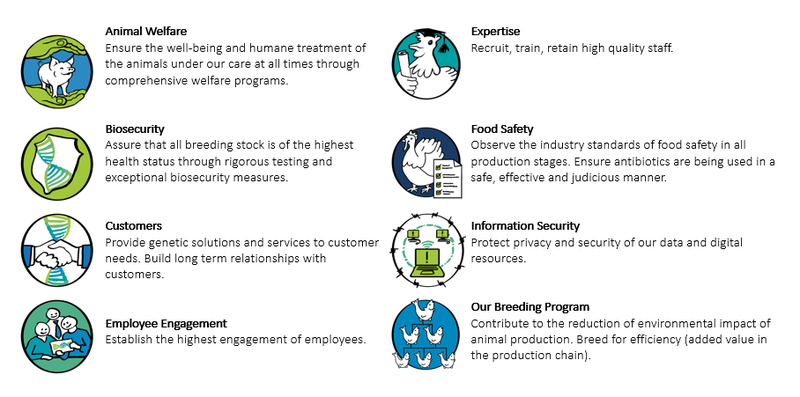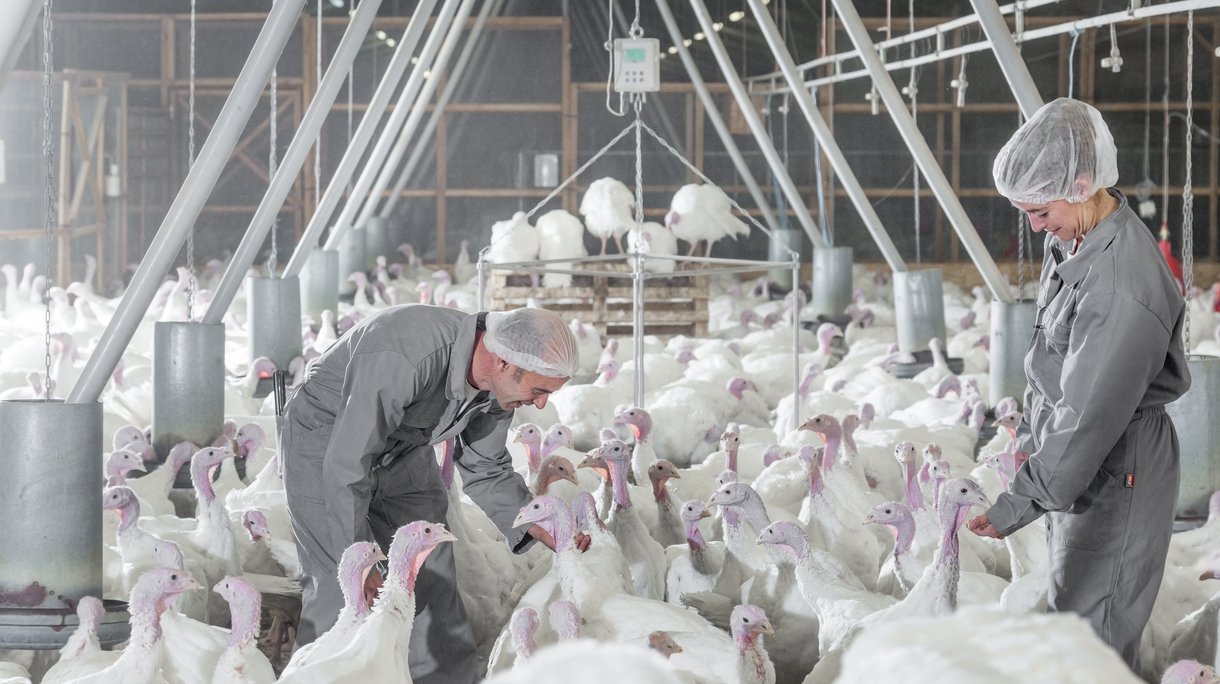
Is antibiotic-free turkey production within reach? How can we responsibly reduce the use of antibiotics while treating health challenges in the field?
When bacterial infections become severe, antibiotics are a possible and effective solution. For over 70 years, antibiotics have been used to help improve survival rates while at the same time creating a safer supply of food. On the other hand, with repeated over and misuse, bacteria has been able to evolve over time and becoming more resistant. Careful consideration is needed to reduce antibiotic use without jeopardizing animal welfare.
Sustainability program
Hendrix Genetics’ sustainability program has been in place since 2013. During the first 5 years of the program, responsible use of antibiotics was one of the main mandatory stakes for all business units, along with improving biosecurity, animal welfare, and health and security of personnel. This phase was concluded with an extensive CSR report and was followed up with new initiatives based on eight material stakes. These stakes were derived from an extensive customer survey to boost sustainability as we aim to set standards for sustainable animal breeding.

Responsible use of antibiotics
As part of the food safety stake, is our commitment to the responsible use of antibiotics. We have implemented a system to monitor the use of antibiotics at all Hendrix Genetics facilities and all contract farms. We also defined strict, conservative standards for responsible use of antibiotics. The usage of antibiotics must follow a clear and formalized protocol and always must be conducted under veterinary control.

Responsible use of antibiotics begins with a reduction of usage at the start of the value chain. By working on the cause of the disease, tracking the way we treat it, and the analysis of the issue at hand, we can reduce the cause and eventually reduce the usage of antibiotics. At the same time, we are actively searching for other treatment solutions by investigating alternative products, all aimed to ensure the well-being of present and future generations.
There is strong pressure from society to reduce chemical treatments, especially antibiotics. The use of antibiotics in our company has always been very controlled and limited, but we are going to have less and less access to certain molecules and we will have to be creative to find new solutions, while continuing to work on disease prevention. The challenge for the years to come is clearly to manage, with limited medical resources, a pressure of diseases that can only increase. The means of prevention and the robustness of the animals will be two key areas for success – on which we are continuously working to improve.
In order to keep our flocks and people healthy, we focus on sustainable breeding. We select birds that are more resistant to diseases and can quickly recover from challenges on their own. We also have a biosecure system in place to prevent the need for antibiotics in the first place. We secure the supply of genetics by having a global structure of strategically located farms and hatcheries. All these and more efforts are in place to create a safer worldwide supply of food.
Effectively implementing antibiotic-free animal production requires the entire value chain to collaborate. When more people commit to implementing good practices like strong biosecurity protocols to minimize the need for antibiotics, combined with the use of new technologies, we will be best equipped to reduce the need for treating disease with antibiotics.








